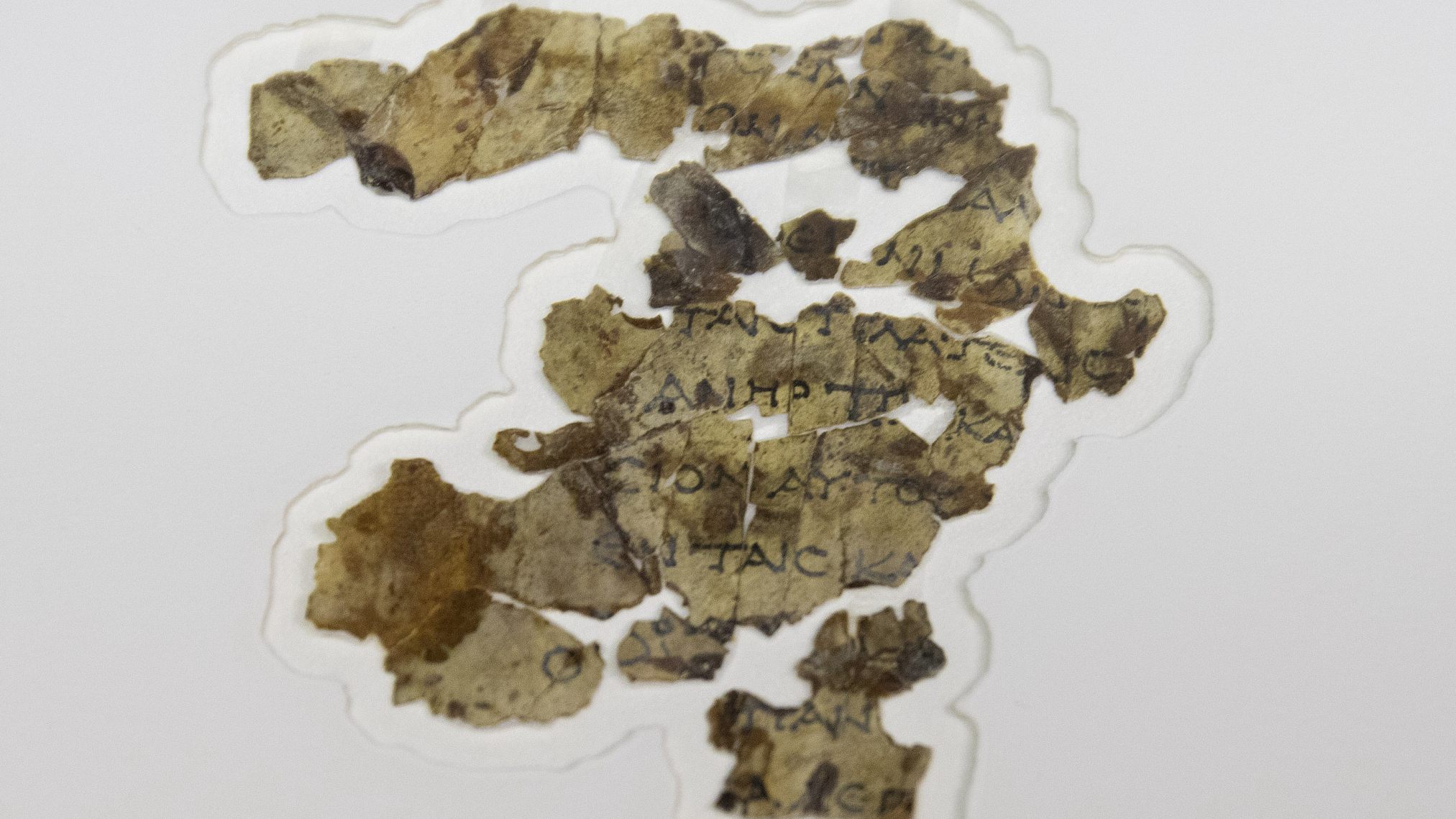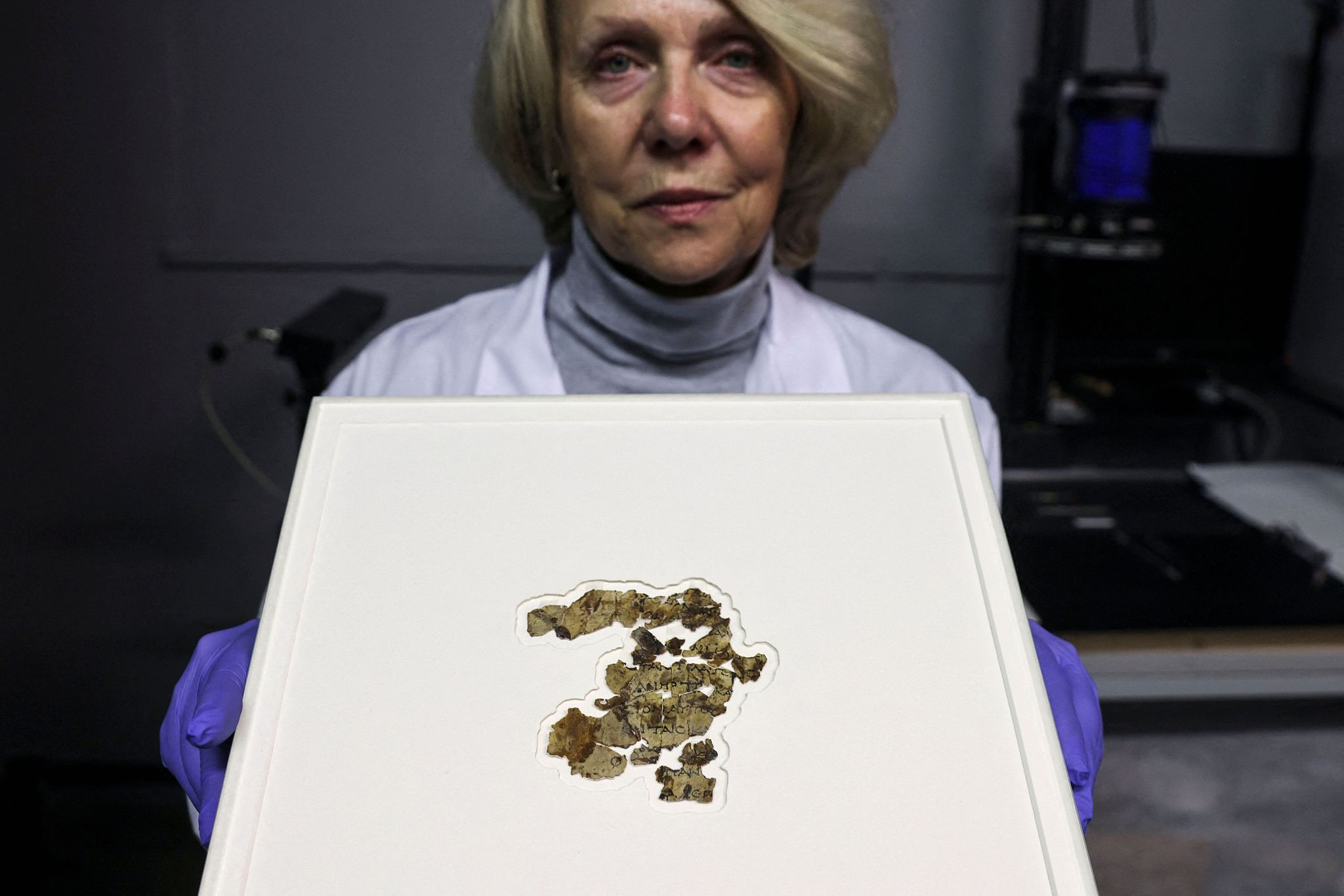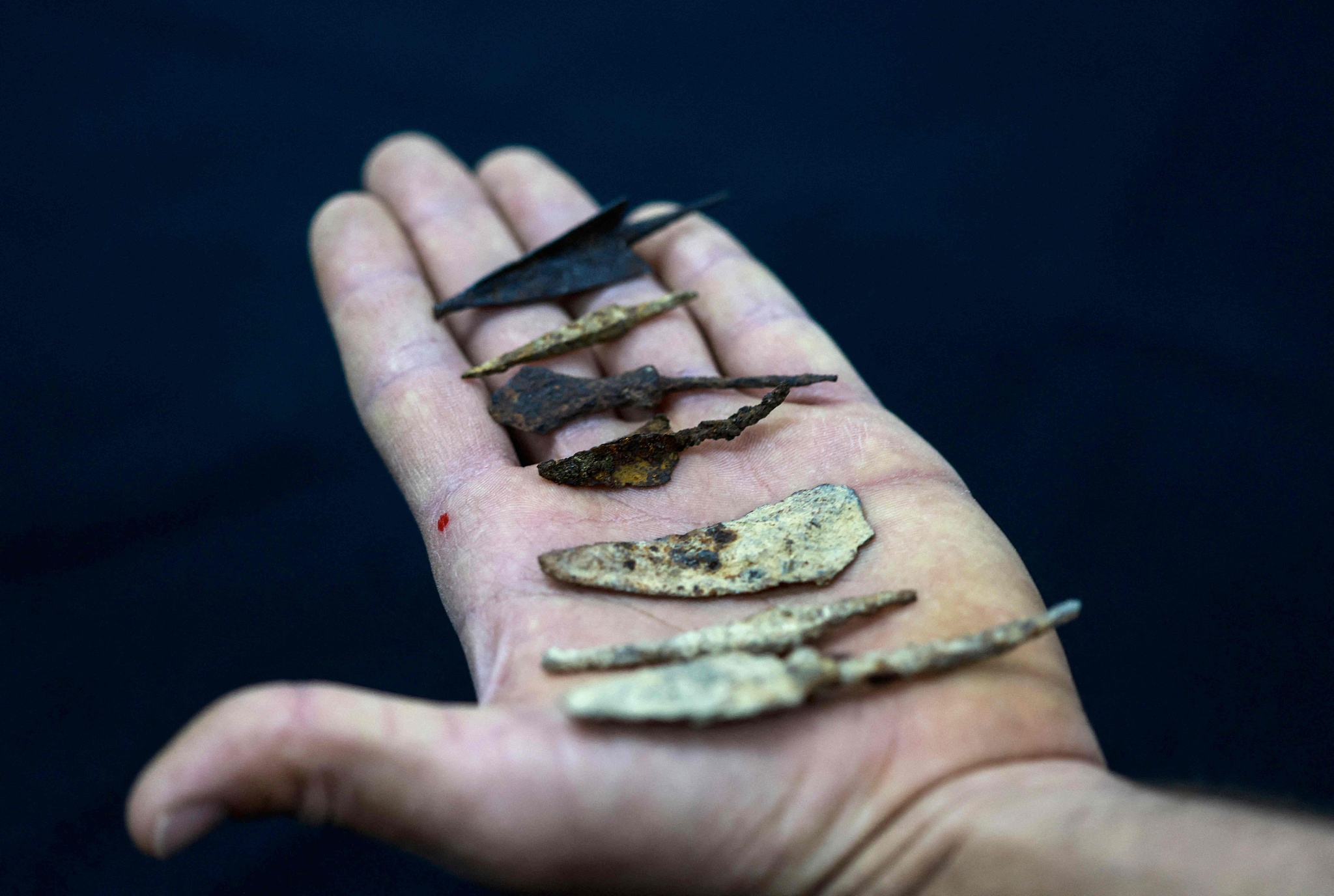
IAA displays newly discovered Dead Sea Scroll fragments at the Dead Sea scrolls conservation lab in Jerusalem, Tuesday, March 16, 2021. /CFP
IAA displays newly discovered Dead Sea Scroll fragments at the Dead Sea scrolls conservation lab in Jerusalem, Tuesday, March 16, 2021. /CFP
Israel on Tuesday unveiled fragments of a biblical scroll dating back some 2,000 years, in what experts described as the most significant such find since the Dead Sea Scrolls.
The artifacts were unearthed during excavations by the Israel Antiquities Authority (IAA) in the Judean desert, which spans parts of southern Israel and the occupied West Bank.
In a site known as the "Cave of Horrors," archaeologists found fragments of a scroll with a Greek translation of the Hebrew bible, the first such find since the early 1960s.

IAA conservator Tanya Bitler displays recently-discovered 2000-year-old biblical scroll fragments from the Bar Kochba period after completion of preservation work at the authority's Dead Sea conservation lab in Jerusalem, March 16, 2021. /CFP
IAA conservator Tanya Bitler displays recently-discovered 2000-year-old biblical scroll fragments from the Bar Kochba period after completion of preservation work at the authority's Dead Sea conservation lab in Jerusalem, March 16, 2021. /CFP
"For the first time in approximately 60 years, archaeological excavations have uncovered fragments of a biblical scroll," the IAA said.
Oren Ableman, an IAA curator, told AFP parts of the same scroll from the Book of the Twelve Minor Prophets were first discovered in the Cave of Horrors by Bedouins in the 1950s.
The Cave of Horrors took its name from the numerous skeletons found inside it and the treacherous terrain nearby.
Most of the text is in ancient Greek, a widely used language at the time, but the word Lord appears in ancient Hebrew script.

IAA shows arrowheads from the Bar Kochba Jewish revolt period dating back to 132–136 CE, excavated from an area in the Judean Desert, after conservation work is done at the IAA's Dead Sea conservation laboratory in Jerusalem, March 16, 2021. /CFP
IAA shows arrowheads from the Bar Kochba Jewish revolt period dating back to 132–136 CE, excavated from an area in the Judean Desert, after conservation work is done at the IAA's Dead Sea conservation laboratory in Jerusalem, March 16, 2021. /CFP
Oren said that among the most striking features of the new fragments is a deviation from all other known versions of the Old Testament: in one passage, the word "gates" is replaced by the word "streets."
The significance of that deviation is "what we are trying to discover now," he said.
Yosef Garfinkel, head of the Institute of Archaeology at Jerusalem's Hebrew University, described the find as "exciting," telling AFP it could enrich the "study of the history of the Greek translation of the bible."
The items were discovered in a cave believed to have been used by Jews rebelling against the Romans during the failed second-century Bar Kochba revolt.
The IAA compared the find to the extraordinary discovery of the Dead Sea Scrolls, some 900 manuscripts found between 1947 and 1956 in the Qumran caves above the Dead Sea in the West Bank.
They are some of the earliest biblical texts ever found.
Source(s): AFP

